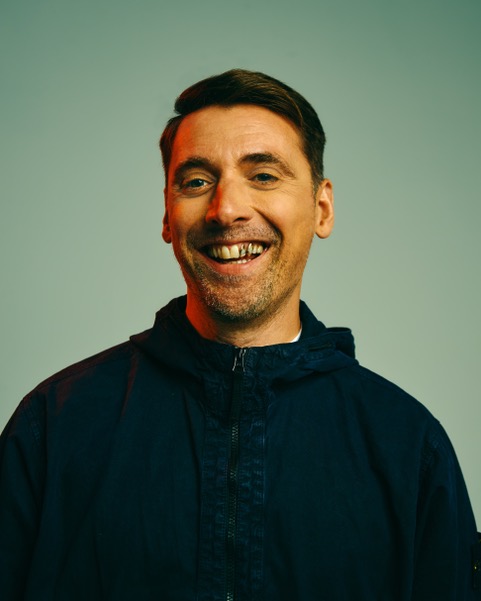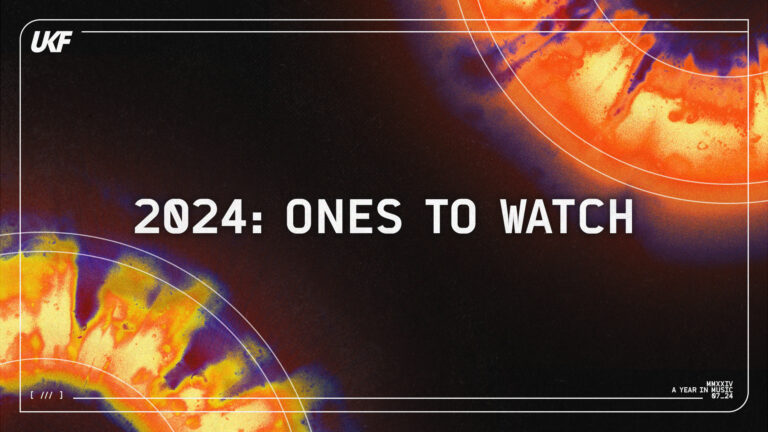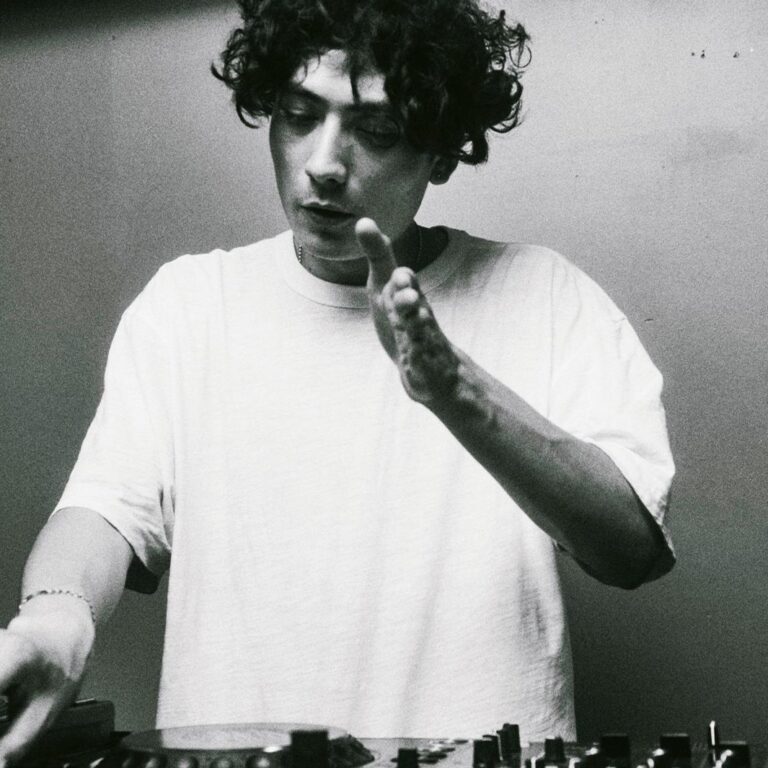Advocating for progression within a scene, all whilst fully representing the origins, can be a tricky balancing act. Not for Hugh Pescod AKA Clipz AKA Redlight, though. From collaborating with new-school jungle star Nia Archives on ‘No Time’ to linking up with Obi Franky on his latest release ‘Say Less’, Hugh steers clear of gatekeeping and instead, welcomes artists of this new era into both the jungle/drum & bass fold and – better yet – his London based studio.
Since his official return to his Clipz alias back in 2019 with ‘Down 4’, we have been blessed with a bucket load of Hugh’s jungly, rave-centric remixes, collaborations and singles: all of which were greatly received by both the mainstream and the deep, dark depths of the underground.
The time has now come for something bigger. Yes – a full body of music is brewing. We jumped on Zoom with Clipz so he can spill the tea on his latest project.
Clipz! You’re kick-starting 2024 in a strong way with your new project. Why is this project special to you?
Yeah, I’m sitting on a lot of music! I’ve collaborated with a lot of people too. I want to put everything out as one whole body of work. As we all know, jungle and drum & bass has been around for a long time now in Britain and it’s a massive part of our culture. Everyone, including people’s parents, know about drum & bass. It’s part of the fabric of our society now. It’s one of our best exports, and now, on this wave coming through, it feels like there are a lot of new and young artists, pop artists, rappers, young creatives who – where people would normally start their journey on house or rap or alternative music – are starting their journey on drum & bass. There’s a huge scope of different creative angels and artists to work with now, there are people who would’ve potentially not wanted to work with drum & bass a few years ago, who now want to make or work with people in the genre. So it’s a lot easier to get good features right now.
D&B always comes in and out of the mainstream, but would you say it’s currently the biggest it’s been in terms of infiltrating the commercial sector?
I think there is a catalogue of things that have propelled it to this. I think the disruption of how we consume music has helped make it more accessible. The whole playlist aspect of it now has changed everything. You look at drum & bass playlists on Spotify and it’s basically pop. You’ve got pop top lines on top of D&B beats, so there is a home for that kind of music now. Then, you’ve got the home for absolute bangers. There’s a place and a home for everything these days. Also, back in the day you’d say ‘I want to go to a jump up rave!’ or ‘I want to go to a liquid rave!’ and a lot of the DJs from one side wouldn’t play the music from the other side, but I think there is a lot more understanding, acceptance and merging of all types of jungle and drum & bass now. Whereas now, everything has merged a lot more. You’ve got a new generation trying new things. It’s the evolution of music.
Whilst D&B is where it is, what do you think needs to happen for it to stay authentic and thrive in the underground?
Thing is, it’s all waves. The bees come buzzing along every now and then to all genres of music, AKA the people that just want to jump on to a genre to make cash – they’ll buzz around for a minute, try and get some honey. Then, when there’s another hive up the road, they’ll buzz off, and it’ll go underground again. This isn’t its first rodeo. Roni Size & Reprazent won a Mercury back in 1997. Goldie won a MOBO in the 90s too. This is the fourth or fifth time it’s come around. Chase & Status, how many times have they circled back into the mainstream? Rudimental, Sigma, there have been so many chapters of commercial D&B. It will die back down again like everything does. Tech house a few years ago, dubstep. The bees eventually buzz off. You’ll see what singers and rappers buzz off with it because as a featuring artist, you kind of have to to stay relevant as a vocalist. And it’s all good either way! It doesn’t really matter. This is British culture, they can buzz here and there if they want, it’s creative. There should be no gatekeeping. We know what the foundation is, we know who the godfathers are, and we give thanks. They created this thing and we are guests in what they created but at the end of the day, we’re talking about the fifth generation of 17-23 years old, they weren’t even born in 1995. So really and truly, it’s a new world.
Looking back at your involvement within that evolution, what are you most proud of from that time? Something completely personal to you.
I worked really hard and no one taught me how to make tunes so even just being able to learn how to make music in the first place was an achievement. People like GQ, Roni Size, Die, Bryan G, Grooverider and Krust, would play my tunes back in the day and that was a big achievement for me too. Being in Fabric and hearing your tune, then all of a sudden you’re in Japan. We all had a studio together, me, Roni, Krust, and Die. There was a proper community in Bristol in the early 2000’s. Those memories are good, pushing the sound forward. It wasn’t until later that I decided to move on and do something else.
Which is when Redlight came in…
Yeah, I wanted to continue my creative journey and do different things.
You have Redlight and Clipz releases dropping simultaneously – is there a reason for the current explosion of music?
I’m a music producer, so I’m always making music. But it’s like what I was saying before, it’s the bees and the honey. You have waves, in music, in health. Sometimes you’re good, sometimes you’re not so good. Same with music, you might have a few months where you’re not happy with certain things but to be honest, I’m never not happy with my music. If someone doesn’t like my tunes, I don’t really give a sh*t. I’ll just carry on and make another one. We’re so free now with how creativity is consumed. Everyone has ADHD online. They’re all jumping from this to that. People aren’t even paying attention to what you’re doing, so you can just get on and that’s a lot freer. I think that’s the best thing about this modern era of music, where we’re at right now. You’re a lot freer and it’s a lot less judgemental. There’s so much information out there that it’s overwhelming, so you just tune into what you’re into.
Would you say that because everything was a lot more highlighted back in the day, releasing music came with a lot of anxiety too?
Back then, people would have to be playing your tune on dub for at least 6-8 months before you put it out, so you knew it was embedded in the clubs and people were into it. When people started ringing you for a tune, you knew that that’s the one you’re going to put out next. Whereas now, no one is ringing anyone for a tune. You just send them out. It’s so different now, and I’m not saying that’s a bad thing either, use the tools that are in front of you. Splice, sample packs, plug-ins, You can still make a wicked tune with the exact same kit that someone else is using, you just need to use it differently. You can put stuff out without backing it with any money, do a silly dance on TikTok and that’s it. It’s easier now, you don’t have to get all caught up in your feelings. It’s a positive thing.
For the younger generation that has everything more accessible for them in terms of tech and software – what would you encourage them to seek, alongside the fundamental skills of the production itself?
Identity. And remember, not everyone is going to like you. If you’re looking for validation from other people, you’re going to get lost and you’re going to get depressed. Form an identity, play around with some ideas. It’s like handwriting, you can’t help your natural identity. You may get taught to handwrite properly but at the end of the day, your signature is your signature. It’s the same with music, and once you’ve formed your identity, you have that for life.


